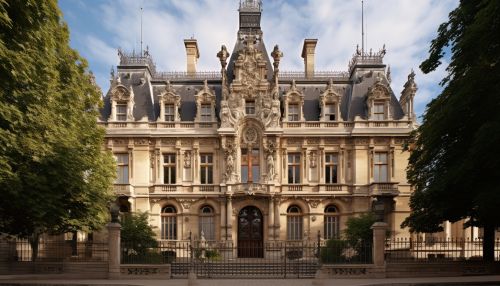University of Paris
History
The University of Paris, known as La Sorbonne, has a rich and complex history that dates back to the 12th century. It was one of the earliest established universities in Europe, and its influence on the academic world has been profound. The university was originally established as a corporation of students and masters, a model that would later be adopted by other universities across the continent.


In the Middle Ages, the University of Paris was divided into faculties, each specializing in a particular field of study. These faculties included Theology, Law, Medicine, and Arts. The faculty of Arts was further divided into four "nations": the French, the Picards, the Normans, and the English, reflecting the diverse origins of the students.
The University of Paris played a significant role in the intellectual and cultural life of the city and the nation. It was a center of scholasticism, a philosophical and theological movement that sought to reconcile faith and reason. The university was also a hub of political activity, with its students and faculty often involved in debates and controversies that shaped the course of French history.
In the 19th century, the University of Paris underwent a series of reforms that transformed its structure and curriculum. The faculties were reorganized, and new disciplines such as Natural Sciences and Social Sciences were introduced. The university also expanded its reach, establishing branches in other parts of France and abroad.
The 20th century saw further changes, with the University of Paris being split into several autonomous universities in 1970. These universities, known as the Paris Universities, continue the legacy of the original University of Paris, each with its own focus and specialties.
Academics
The University of Paris has been renowned for its academic excellence and rigor. It has produced numerous scholars, scientists, and intellectuals who have made significant contributions to their respective fields. The university's curriculum is diverse and comprehensive, covering a wide range of disciplines.
The university's faculties offer undergraduate, graduate, and doctoral programs. The curriculum is designed to provide students with a solid foundation in their chosen field of study, while also encouraging interdisciplinary learning. The university places a strong emphasis on research, with many of its faculty members being leading researchers in their fields.
The University of Paris is also known for its rigorous academic standards. Students are expected to demonstrate a high level of proficiency in their chosen field of study, and the university's examinations are known for their difficulty. The university also places a strong emphasis on independent study and critical thinking, with students encouraged to engage with their subjects in a deep and thoughtful manner.


Campus and Facilities
The University of Paris is located in the heart of Paris, with its main campus situated in the Latin Quarter. The campus is home to a number of historic buildings, many of which date back to the Middle Ages. The university also has a number of modern facilities, including state-of-the-art laboratories and research centers.
The university's library system is one of the largest and most comprehensive in France. It houses a vast collection of books, journals, and other resources, covering a wide range of disciplines. The libraries also provide a variety of services to support the research and study needs of students and faculty.
The University of Paris also has a number of cultural and recreational facilities. These include museums, art galleries, and performance spaces, as well as sports facilities and green spaces. The university's location in the heart of Paris also provides students with easy access to the city's many cultural and recreational offerings.
Notable Alumni and Faculty
The University of Paris has been associated with many notable figures in the fields of academia, science, politics, and the arts. These include scholars such as Thomas Aquinas and John Calvin, scientists such as Pierre and Marie Curie, and philosophers such as René Descartes and Voltaire.
The university has also been home to a number of Nobel laureates, including Albert Fert in Physics, Jean-Pierre Sauvage in Chemistry, and Patrick Modiano in Literature. In addition, many of France's leading politicians, including several presidents, have been alumni of the University of Paris.
